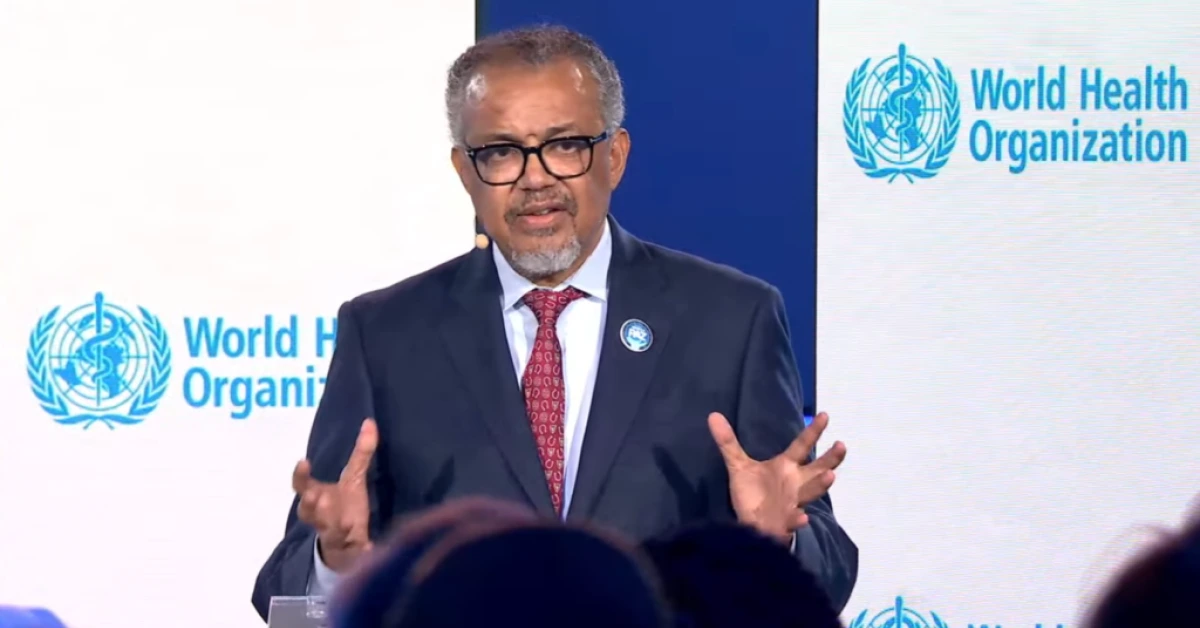
GERMANY – The World Health Organization (WHO) has launched its first European “investment round” to raise financial support for its ambitious US $11.1 billion four-year strategic plan At the World Health Summit in Berlin.
This fundraising effort seeks to address long-standing budget shortfalls and ensure sustainable, flexible funding for the organization’s global health initiatives.
The WHO’s investment round is a key focus of the World Health Summit, a gathering of health leaders, researchers, and advocacy groups from across the globe.
This year’s summit addresses pressing issues such as pandemic preparedness, the role of artificial intelligence in healthcare, climate change’s impact on health, and pharmaceutical intellectual property rights.
According to WHO Assistant Director-General Catarina Boehme, the COVID-19 pandemic was a turning point that highlighted critical issues with the organization’s funding model.
“COVID was really the trigger for this journey towards sustainable financing,” Boehme said in an interview.
“Member states realized what’s wrong with WHO’s funding – it’s about the resilience of funding, the lack of diversification, and the lack of flexibility.”
Seeking long-term, flexible funding
For decades, member states’ regular contributions have only covered 20-30% of the WHO’s budget. While a 2022 decision aims to increase that to 50% by 2030, significant gaps remain.
To close these gaps, the WHO is working to secure voluntary donations from European governments, philanthropies, and foundations, seeking multi-year commitments that offer more flexibility and fewer restrictions on how funds can be used.
“We are super ineffective because 80% of our funding is earmarked,” Boehme said, referring to funds tied to specific programs.
“It’s really narrowly defined what we can spend it on, which is terrible, for example, for health emergencies. We basically cannot direct our funding where we need it.”
In addition to flexibility, predictability is crucial. “Half of WHO’s voluntary donations come as one-year grants, leaving the organization heavily dependent on short-term staff with no job security,” Boehme explained.
“It’s not even about elevating the baseline. It’s actually more about making funding more predictable, more flexible. Then we can use the baseline to pay for the core stuff we need to react to emergencies.”
Global health leaders support WHO’s funding drive
The Berlin event features high-profile speakers such as German Chancellor Olaf Scholz, philanthropist Bill Gates, and Wellcome Trust CEO John-Arne Rottingen.
They were joined by health ministers from France, Germany, Greece, Norway, and Switzerland, signaling widespread European support for WHO’s initiative.
The agency hopes that this backing will set the stage for similar funding rounds in other regions, including the Americas, Eastern Mediterranean, Africa, and Western Pacific.
Lessons from the pandemic: ‘Trust Is Essential’
In his opening remarks, WHO Director-General Dr. Tedros Adhanom Ghebreyesus emphasized the importance of trust in securing global health.
“Trust itself does not make people healthy, but no one can be healthy without trust,” Tedros said. “Strong partnerships – like strong relationships – are built on trust.
Everything we do depends on the trust of the communities we serve, the partners with whom we work, and the member states who set the global health agenda.”
Tedros linked this message to the theme of the conference and the organization’s new four-year strategy, which aims to save 40 million lives through improved health programs worldwide.
“Delivering that strategy requires a strong and sustainably financed WHO, which is why we have launched the first WHO Investment Round,” he added.
Global health investments for a better future
The WHO’s funding push comes at a time when health systems are under immense strain, and resources are limited.
However, Tedros reminded attendees of the broader impact of investing in global health.
“As the COVID-19 pandemic demonstrated, when health is at risk, everything is at risk. Investments in WHO are therefore investments not only in healthier populations, but also in more equitable, more stable, and more secure societies and economies.”
Following the Berlin summit, the WHO will continue its fundraising efforts in other regions, inspired by the success of multilateral organizations like The Global Fund and Gavi.
However, WHO’s approach is more measured, focusing on broadening the base of member state contributors and fostering a culture of long-term, flexible funding commitments.
XRP HEALTHCARE L.L.C | License Number: 2312867.01 | Dubai | © Copyright 2025 | All Rights Reserved